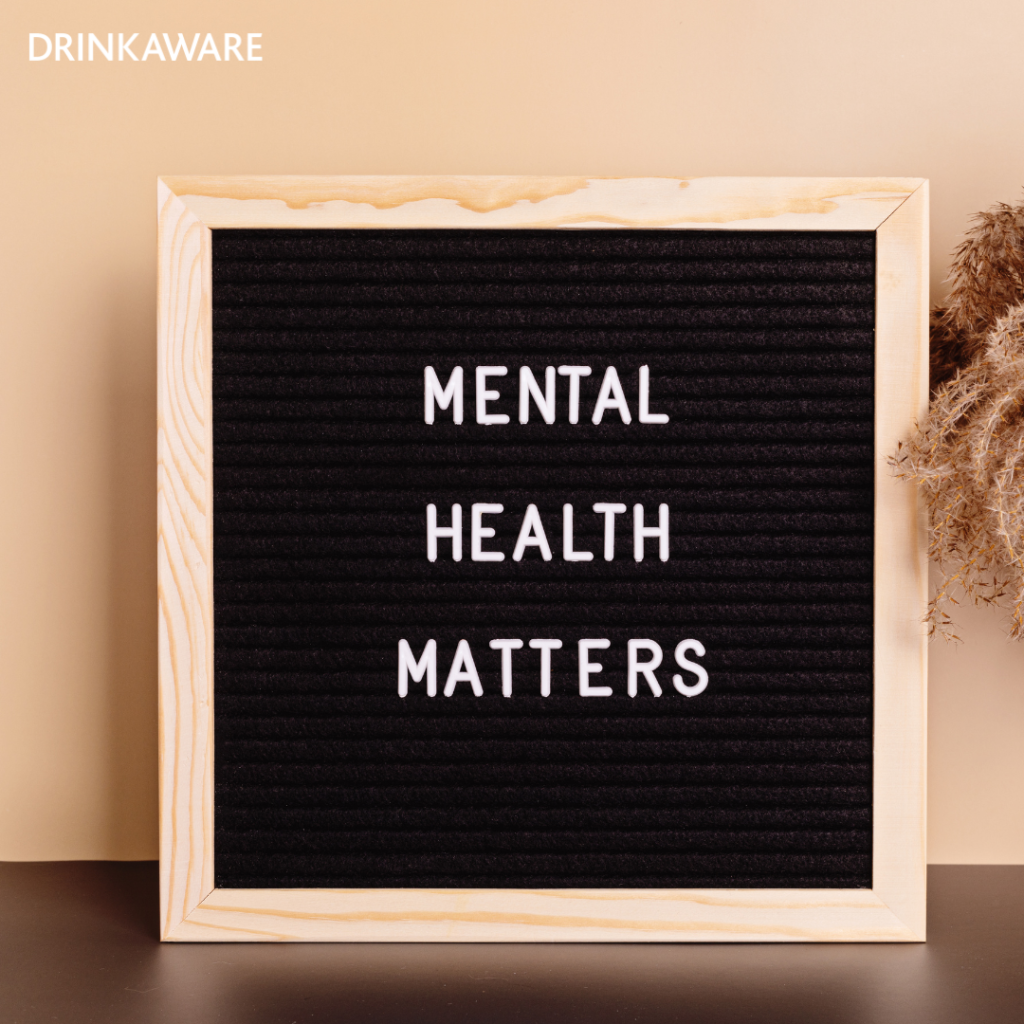Practical Tips for Enhancing Your Mental Well-being

The theme for this year’s Mental Health Awareness Week is ‘Moving More for Mental Health’, emphasising the significant impact movement has on our mental well-being. According to research from the Drinkaware 2023 Barometer report, mental health has not yet reached the high levels of well-being seen before the pandemic in 2018. In 2018, 11% of Irish adults reported low mental well-being, while in 2020, this number rose to 37%. As of 2023, 34% of adults in Ireland are reporting low mental well-being. During Mental Health Awareness Week, Drinkaware is reminding the public that their mental health matters and wants to encourage them to prioritise their mental well-being with our tips below.
Get The Facts
By knowing how alcohol can affect your mental health you can start to make small but impactful changes to your overall health. By reducing your alcohol intake you will notice both long-term and short-term benefits that include:
- Better sleep
- More energy
- Healthier appearance
- Clearer skin
- Improved mental health
- Improved physical health
Tips to cut down or out alcohol are:
- Track how much you drink
- Stay out of rounds
- Drink water in between every alcoholic drink
- Try being sober curious
- Try an alcohol-free month and keep a note of how you are feeling overall
Prioritise Self-Care
Self-care is not just a buzzword; it’s a necessary practice for maintaining mental health. It means different things to different people, but the essence lies in doing things that make you feel relaxed and happy. Did you know that 44% of adults in Ireland drink alcohol to relax and unwind? Instead of pouring a glass of wine or having a pint after a stressful day, swap your drink for something that will make your mind and body feel good. Whether going for a walk, trying a new exercise class, reading a book, engaging in physical activity, or simply sitting in silence, find what works for you and make it a non-negotiable part of your routine. Remember, self-care isn’t selfish; it’s essential.
Find Your Hobby
With the everyday stressors of life, we sometimes forget to enjoy our hobbies. Some of us don’t even have hobbies. With a pen and piece of paper, write down some hobbies you’d like to start, no matter how wild they may seem. Next, find out where you can nurture this hobby. Are you interested in pottery, dancing, a new sport or creative writing? Find out where in your local community you can nurture this hobby. Remember, you don’t have to be good at your hobbies. If they make you happy, that’s all that matters.
Connect with Others
Social connections are vital for our mental health. Going for a drink doesn’t have to be the only way you socially engage with people. Try some alcohol-free meet-ups that can be as simple as meeting your friends and having a cup of tea and a chat, trying a new activity together or even trying alcohol-free bars in your vicinity if there are any. They help us feel a sense of belonging and can provide support when we’re going through tough times. Try reaching out to friends, family, or colleagues. It could be as simple as sending a text, calling someone you haven’t spoken to in a while, or joining a group or club with like-minded individuals. In a world that can sometimes feel isolating, making connections can be a powerful antidote to loneliness.
Stay Active and Eat Well
Staying on theme, physical health and mental health are closely linked. 63% of adults have cited they are drinking less alcohol so they can improve their physical health and 31% say it is to improve their mental health. Incorporating regular exercise can boost your mood, concentration and alertness levels. Physical activity doesn’t mean you need to run a marathon or join a gym; find exercises you enjoy and can incorporate into your daily life. Similarly, eating a balanced diet can influence the way you feel. Simple changes like staying hydrated, reducing alcohol intake, and eating more fruits and vegetables can make a big difference.
Learn to Manage Stress
Stress is an inevitable part of life, but how we manage it counts. 55% of adults in Ireland drink alcohol to cope. Techniques like mindfulness, meditation, and deep-breathing exercises can help calm your mind and reduce stress levels. Setting realistic goals, breaking tasks into smaller steps, and taking regular breaks can also prevent burnout. Remember, it’s okay to ask for help when you’re feeling overwhelmed. Whether it’s talking to a friend or seeking professional support. If you need support, please see our support page.
Take a Digital Detox
In an age where we’re constantly bombarded with information and notifications, taking time away from screens can be incredibly beneficial for our mental health. Set aside time each day or designate certain hours when you disconnect from all digital devices. Use this time to reconnect with yourself or loved ones, or to engage in activities that refresh and rejuvenate you.
Mental Health Matters
Mental Health Awareness Week is a reminder that mental health is just as important as physical health. Your mental health matters and by incorporating these practical tips into your life, you can take steps towards improving your mental well-being and overall quality of life. Remember, it’s okay to not be okay, and seeking help is a sign of courage. For more tips visit www.drinkware.ie and follow us on Instagram.

